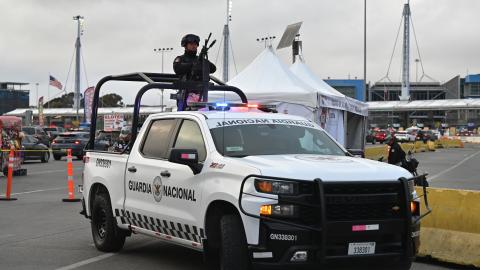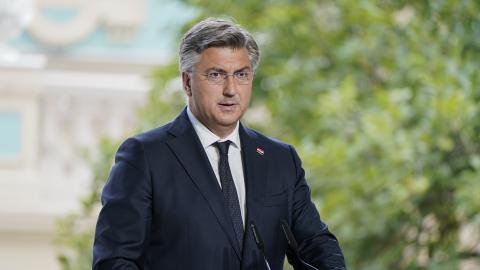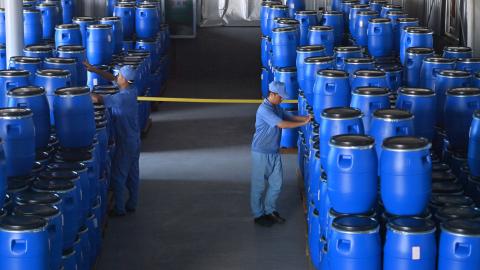Five years after the Obama Administration intervened in Libya to help topple Muammar Ghadafi, the U.S. may be sending troops back to Libya. The Wall Street Journal reports:
“The last thing in the world you want is a false caliphate with access to billions of dollars in oil revenue,” Secretary of State John Kerry said about Libya at a meeting of the coalition against Islamic State in Rome this week.
The preferred scenario for any intervention, senior Western officials say, is to be invited by a widely recognized government that would unite most Libyans against the threat of Islamic State, also called ISIS or Daesh. But, some say, the West may have to go it alone if the situation deteriorates dramatically on the ground.[..]
If a Libyan government ends up inviting foreign troops, Italy, France, the U.K. and the U.S. are likely to consider creating a force that would back Libyan units in operations against Islamic State, diplomats say. These countries have worked for months on contingency planning and the U.S. already sent a small Special Operations team into Libya.
Richard Dalton, an associate fellow at the Royal Institute of International Affairs and a former U.K. ambassador to Libya, estimated the international force would need at least 10,000 troops to be effective. Islamic State, he pointed out, operates out of at least four locations in Libya that would have to be tackled simultaneously.
Has somebody made another inflammatory video? Because the action in Libya is heating up.
When it was just desolation and mayhem for Libyans, the Obama administration was content to let the country stew in the ruins of the “humanitarian war” unleashed by some people who hadn’t bothered to study the lessons of Iraq but still wanted to look like humanitarian heroes. But now that ISIS is making huge strides, the chaos and misery isn’t just a local problem anymore, and Western governments, including the U.S., seem to be looking at another military intervention of some kind.
A new war in Libya could have an effect on the Democratic nominating process: this was Hillary’s war as much as anybody’s, and the less said about it the better from her point of view.
The West now seems to be concentrating its efforts on cobbling together some kind of fragile "unity government" that can provide a legal cover for the next war by inviting foreigners in to help defeat ISIS. But Italy, France and others are (rightfully) terrified of what ISIS strength in Libya could mean in terms of migrant flows and terrorists. Also, if ISIS gets access to Libya’s oil and gas fields, even at todays prices, this would be a lot of money for a group that has vowed endless war against the West.
It's fascinating how the "junior varsity" of ISIS that we didn’t have to worry about and the "smart foreign policy" "success" of the Libyan intervention have combined to create a crisis so serious that another war may be needed.
But perhaps the worst thing about all this is that Libya always was and still is a distraction from the real crisis in the region, one that in both humanitarian and strategic terms is rapidly becoming one of the greatest disasters of modern times: the implosion of Syria and parts of Iraq into an increasingly vicious war in the heart of the Arab world. The Administration is, sadly, right, that the mess in Libya is becoming so great that some kind of action is increasingly hard to avoid. The future, however, will condemn the blindness and folly of the gratuitous creation of anarchy in Libya and the failure to develop any meaningful policy at all where a strong U.S. hand might really have made a difference.
In any case, the next president is going to inherit an even bigger Middle East mess from President Obama than President Obama inherited from President Bush. This is an achievement that nobody, including Obama, thought was even possible in 2009. The Middle East today is bloodier than it was in 2009, its problems are farther from solution than they were back then, the Sunni-Shi'a hatred is deeper, the state system has broken down farther, Iraqis are more deeply divided, and America has fewer friends, less respect and less ability to make things better than we did in 2009. Worse, the trouble in the Middle East is damaging our European allies and our remaining friends (like Jordan) more than anybody would have thought possible in 2009, and the power vacuum our dithering has created has allowed Russia to reinsert itself and its destructive agenda back into a region from which its baleful influence had been almost entirely removed.
The most worrying thought? Suppose the next President is as bad or worse, and the regional situation continues to deteriorate and become more dangerous for another lost presidential term.
















